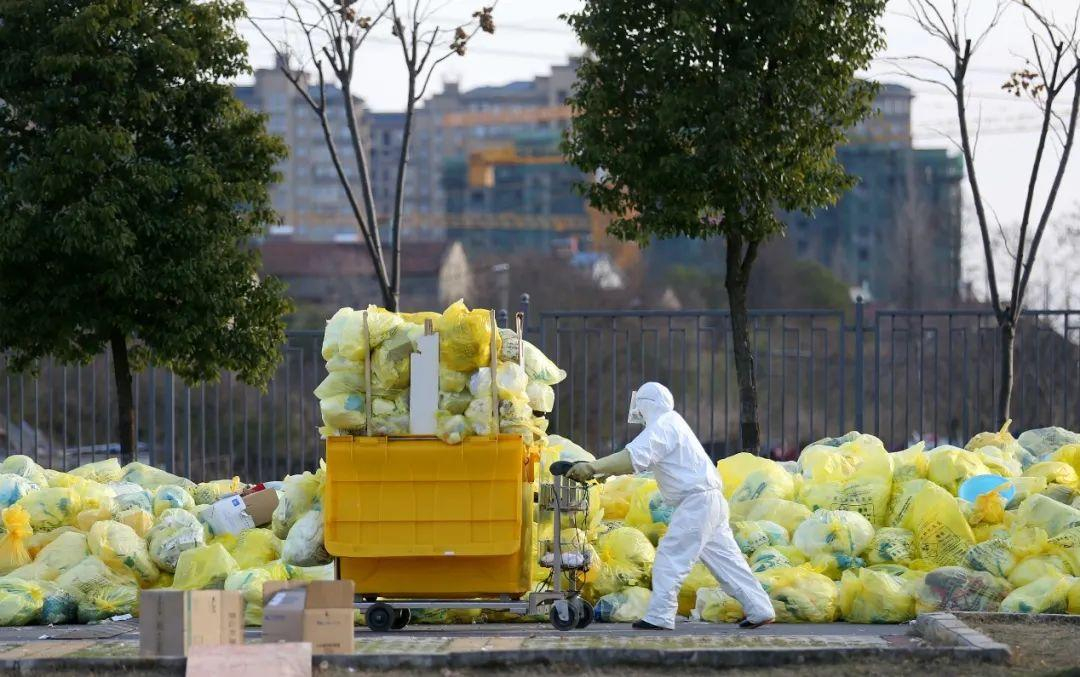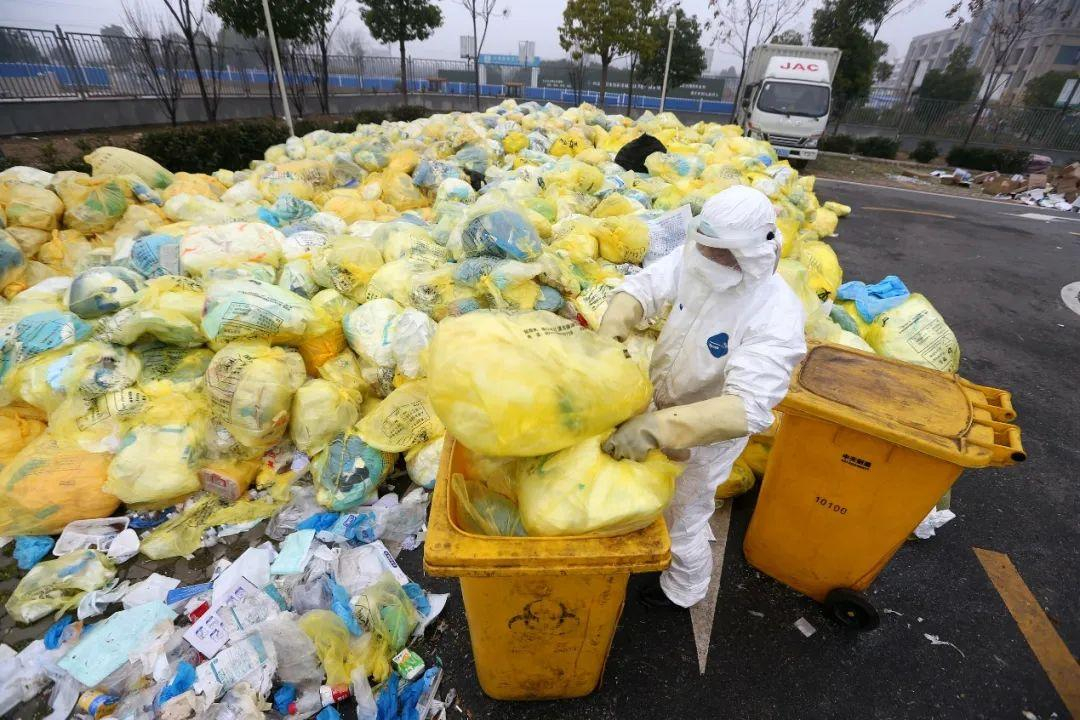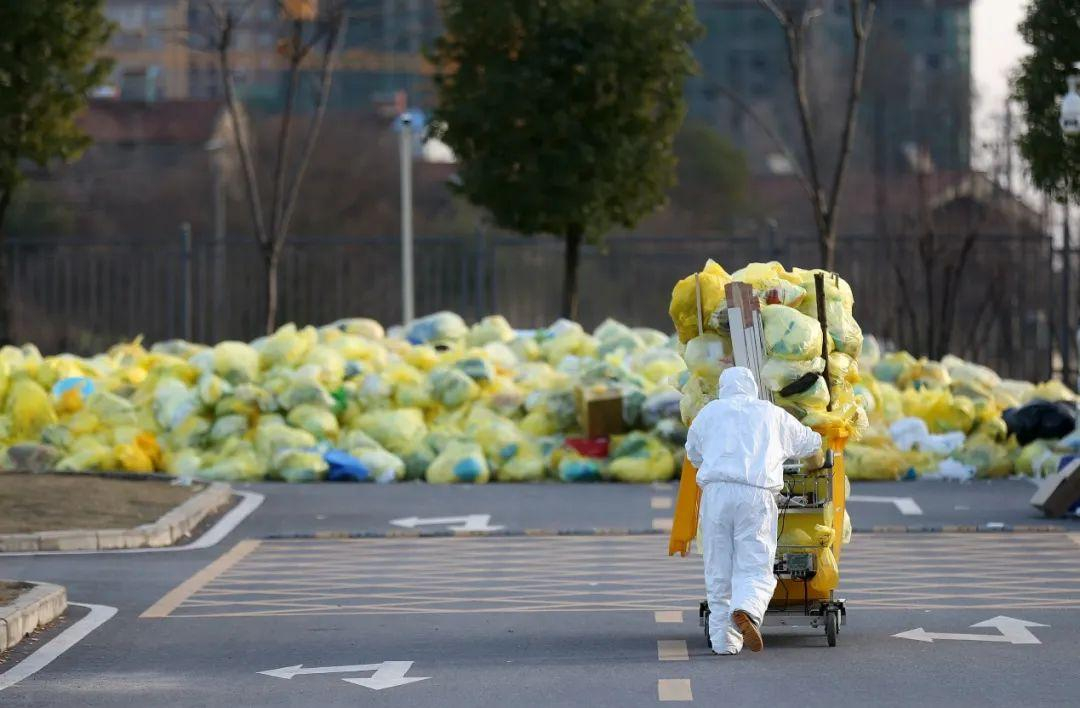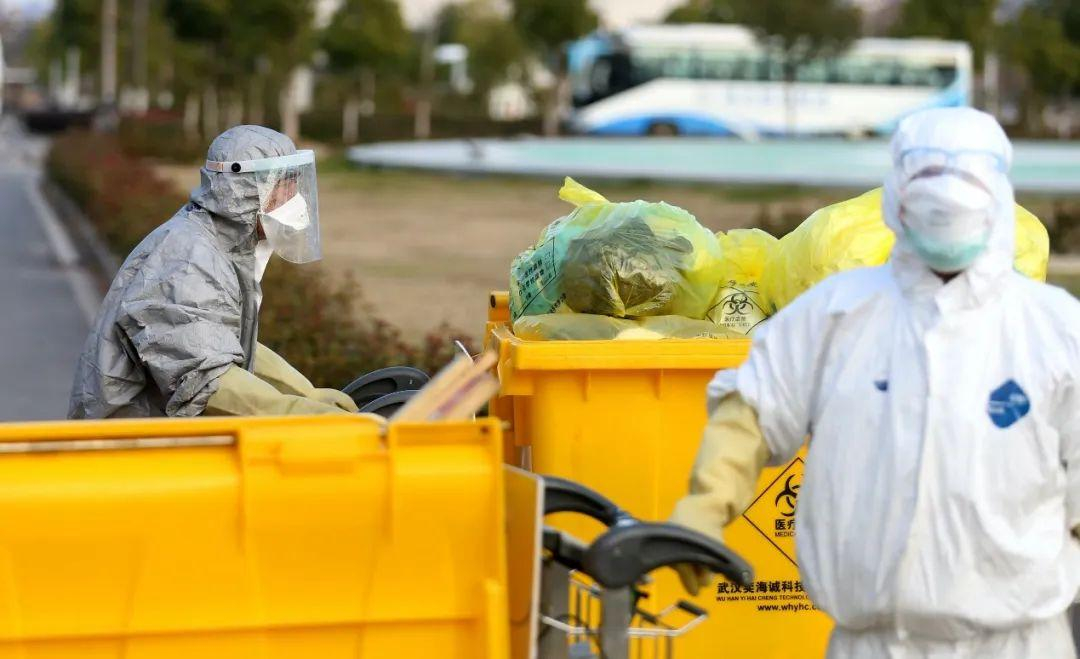
A worker pushes a trolley full of infectious medical waste in the Zhongfa Xincheng branch of Wuhan Tongji Hospital in Wuhan City, central China's Hubei Province. /Global Times
A worker pushes a trolley full of infectious medical waste in the Zhongfa Xincheng branch of Wuhan Tongji Hospital in Wuhan City, central China's Hubei Province. /Global Times
Wearing protective suits, latex gloves, face masks and goggles, medical waste handlers in Wuhan, central China's Hubei Province, the epicenter of COVID-19, are one of the main groups of people who risk getting infected.
With the huge number of confirmed cases in Wuhan, the constantly increasing amount of infectious medical waste and various contaminated domestic waste also pose a potential source of infection in the city.
However, this material is being handled by a significantly reduced labor force.

A worker takes out medical waste bags from the bin and waits for the transfer vehicle to collect the waste in Zhongfa Xincheng branch of Wuhan Tongji Hospital. /Global Times
A worker takes out medical waste bags from the bin and waits for the transfer vehicle to collect the waste in Zhongfa Xincheng branch of Wuhan Tongji Hospital. /Global Times
A member of the support staff surnamed Li was one of the medical waste handlers who worked in the Zhongfa Xincheng branch of Wuhan Tongji Hospital.
He has been working day and night since the Spring Festival holiday to help with the disinfection work and medical waste disposal.
The sudden increase in medical waste and the shortage in the labor force put huge pressure to the hospital as well as medical waste handlers.

Medical waste is temporarily placed in an open-air parking lot in Zhongfa Xincheng branch of Wuhan Tongji Hospital to prevent infection. /Global Times
Medical waste is temporarily placed in an open-air parking lot in Zhongfa Xincheng branch of Wuhan Tongji Hospital to prevent infection. /Global Times
The medical waste in the hospital was originally placed in a temporary storage room in the basement and was sterilized with infrared rays and specialized liquids. However, the COVID-19 outbreak has caused the amount of medical waste generated to increase nearly tenfold, and it is all infectious.
To minimize the risk of infection, the hospital designated an open-air space in the parking lot to be a temporary area for stocking the infectious medical waste. The handlers disinfected the waste here every two hours before transferring it away from the hospital.

A worker collects waste bags from a dustbin and assembles them in the temporary medical waste storage point in the Zhongfa Xincheng branch of Wuhan Tongji Hospital. /Global Times
A worker collects waste bags from a dustbin and assembles them in the temporary medical waste storage point in the Zhongfa Xincheng branch of Wuhan Tongji Hospital. /Global Times
Li told Global Times that at the beginning of the outbreak, he usually worked 14 to 15 hours a day due to the disorganized management. But as the outbreak has gradually got under control, their efficiency has greatly improved and now they work 10 hour days.
In fact, the hospital has over 300 members of support staff. However, due to the outbreak, many were too scared to return as the hospital was appointed as a designated hospital to receive COVID-19 patients.
"As the traditional Chinese saying goes, 'For the rise and fall of a nation, everyone has his obligation.' Now I understand its meaning," said Li, "If nobody wants to come, who will protect the hospital, doctors and patients? If nobody stands out, the society will be over. So we need to be grateful to these doctors, nurses and support workers."

Workers transport medical waste from the Zhongfa Xincheng branch of Wuhan Tongji Hospital. /Global Times
Workers transport medical waste from the Zhongfa Xincheng branch of Wuhan Tongji Hospital. /Global Times
To relieve Wuhan's overloaded medical waste, transfer teams from other cities were also deployed in Wuhan. Four professional medical waste handlers and two medical waste transfer vehicles from Nanjing City, east China's Jiangsu Province, arrived during the Spring Festival holiday. They have worked day and night since arriving and each vehicle has handled 184 barrels of waste.
Another team from Xiangyang City, central China's Hubei Province, also helped a lot with the transfer of infectious medical waste. A total of 92 handlers and 35 transfer vehicles were sent to the city to accelerate the speed of medical waste transfer.